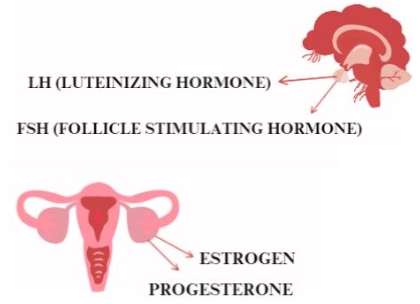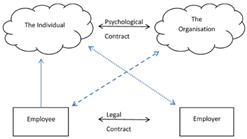Burnout and sleep quality in sports managers
Abstract
Sports managers have great responsibilities aimed at coordinating and directing the organization through the employed staff who will be given precise tasks, regardless of their hierarchical position. Perfectionism or unfulfilled expectations can influence employees’ subjective state, making them more or less vulnerable and prone to burnout. In the present study sleep quality and burnout dimensions (exhaustion and work disengagement) were addressed, in successful sports managers (n = 20), and, also, in the case of future managers (n = 23). The Oldenburg Burnout Inventory and The ATHENS Insomnia Scale were used. For data analysis and processing independent sample t-test and Mann-Whitney (U) test were performed. The results emphasized that female successful managers reported significantly poorer sleep quality and higher daytime sleepiness compared to male successful sports managers. Gender-related differences in terms of burnout dimensions were, also, discussed.
References
Ayman, R., Korabik, K., Morris, S. (2009). Is transformational leadership always perceived as effective? Male subordinates’ devaluation of female transformational leaders. Journal of Applied Social Psychology, 39(4), 852-879.
Croitoru, D. (2010). Managementul organizării și conducerii secțiilor de performanță (Romanian). Discobolul.
Davenne, D. (2009). Sleep of athletes – problems and possible solutions. Biological Rhythm Research, 40, 45-52.
Demerouti, E., Bakker, A. B., Nachreiner, F., Schaufeli, W. B. (2001). The job demands-resources model of burnout. Journal of Applied Psychology, 86, 499–512.
Duyar, I. (2023). Leadership, organizational stressors, and employee work attitudes in educational organizations. Frontiers in Education, 8, 1170595.
Fichten, C. S., Libman, E., Creti, L., et al. (2004). Long sleepers sleep more and short sleepers sleep less: a comparison of older adults who sleep well. Behavioral Sleep Medicine, 2, 2-23.
Fujiwara, K., Goto, Y., Sumi, Y., et al. (2022). Sleep-EEG-based parameters for discriminating fatigue and sleepiness. Frontiers in Sleep, 1, 975415.
Horch, H. D., Schütte, N. (2003). Competencies of sport managers in German sport clubs and sport federations. Managing Leisure, 8(2), 70-84.
Kawalec, A., Wilczyński, K. M., Biecka, A., et al. (2023). Coping methods among Polish students during Covid-19 pandemic. Psychiatria Polska, 57(6), 1151-1167.
Koweszko, T., de Barbaro, B., Izydorczyk, B., et al. (2023). The position statement of the Working Group on the treatment of post-traumatic stress disorders in adults. Psychiatria Polska, 57(4), 705-727.
Lastella, M., Lovell, G. P., Sargent, C. (2014). Athletes’ precompetitive sleep behaviour and its relationship with subsequent precompetitive mood and performance. European Journal of Sport Science, 14, S123-S130.
Leo, C. G., Sabina, S., Tumolo, M. R., et al. (2021). Burnout Among Healthcare workers in the COVID 19 Era: A Review of the Existing Literature. Frontiers in Public Health, 9, 750529.
Maslach, C., Leiter, M. P. (2016). Understanding the burnout experience: recent research and its implications for psichiatri. World psychiatry, 15(2), 103-111.
Messner, M. A. (2002). Taking the field: Women, men, and sports. University of Minnesota Press.
Mihăilescu, N. (2006). Management, marketing, legislație în activitatea sportiva (Romanian). Editura Universității din Pitești.
Mineva, K. (2023). Regulation of positive and negative affect: Associations with stress and resilience in health professions students. Journal of Educational Sciences & Psychology, 13(2), 182-194.
Predoiu, A. (2020). Metodologia cercetării științifice. Aplicații practice și elemente de statistică neparametrică (Romanian). Discobolul.
Predoiu, R. (2016). Psihologia sportului. Maximizarea performantei sportive (Romanian). Polirom.
Predoiu, R., Dumitru, E. S., Predoiu, A., et al. (2021). Temperament and emotional intelligence in the case of sports managers. Discobolul - Physical Education, Sport & Kinetotherapy Journal, 60(2), 170-181.
Predoiu, R., Makarowski, R., Görner, K., et al. (2022). Aggression in martial arts coaches and sports performance with the COVID-19 pandemic in the background - A dual processing analysis. Archives of Budo, 18, 23-36.
Salvagioni, D. A. J., Melanda, F. N., Mesas, A. E., et al. (2017). Physical, psychological and occupational consequences of job burnout: A systematic review of prospective studies. PLOS ONE, 12(10), e0185781. https://doi.org/10.1371/journal.pone.0185781
Schein, V. E. (2007). Women in management: reflections and projections. Women in Management Review, 22(1), 6–18. https://doi.org/10.1108/09649420710726193
Soldatos, C. R., Dikeos, D. G., Paparrigopoulos, T. J. (2000). Athens Insomnia Scale: validation of an instrument based on ICD-10 criteria. Journal of Psychosomatic Research, 48(6), 555-560.
Spector, P. E., Howard, D. J., Eisenberg, E. M., et al. (2024). Starting fresh: a mixed method study of follower job satisfaction, trust, and views of their leader’s behavior. Frontiers in Psychology, 15. https://doi.org/10.3389/fpsyg.2024.1349353
Stufano, A., Awoonor-Williams, J. K., & Vimercati, L. (2022). Editorial: Factors and health outcomes of job burnout. Frontiers in Public Health, 10. https://doi.org/10.3389/fpubh.2022.1023462
Tubić, T., Živanović, B., Lakićević, N., et al. (2022). Psychological Distress in Elite Sambo and Recreational Athletes. Frontiers in Psychology, 13. https://doi.org/10.3389/fpsyg.2022.781880
Volgemute, K., Vazne, Z., & Wirkus, Ł. (2023). Examining stress Tolerance and Self-Efficacy in Soldiers. Journal of Educational Sciences & Psychology, 13 (75)(2), 195–203. https://doi.org/10.51865/jesp.2023.2.15
What WHOOP measures. (2024). Track every step of your health & fitness journey. Available online: https://www.whoop.com/us/en/the-data/ (accessed on 2 May 2024).
WHO. (2019). Burn-Out an “Occupational Phenomenon”: International Classification of Diseases. Available online: http://www.who.int/mental_health/evidence/burn-out/en/ (accessed on July 9 2024).
Yeung, T., Martin, J. L., Fung, C. H., et al. (2018). Sleep Outcomes With Cognitive Behavioral Therapy for Insomnia Are Similar Between Older Adults With Low vs. High Self-Reported Physical Activity. Frontiers in Aging Neuroscience, 10. https://doi.org/10.3389/fnagi.2018.00274
Copyright (c) 2024 Radu Predoiu, Daniela Mihaela Popa, Gheorghe Grigore, Georgeta Mitrache, Alexandra Predoiu

This work is licensed under a Creative Commons Attribution 4.0 International License.









